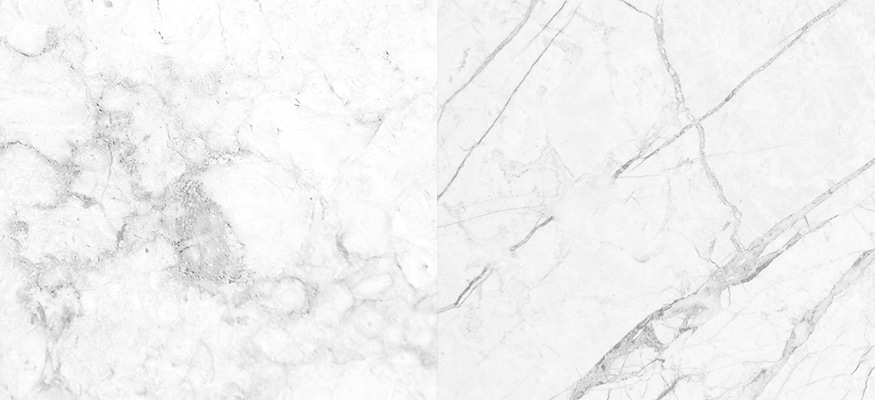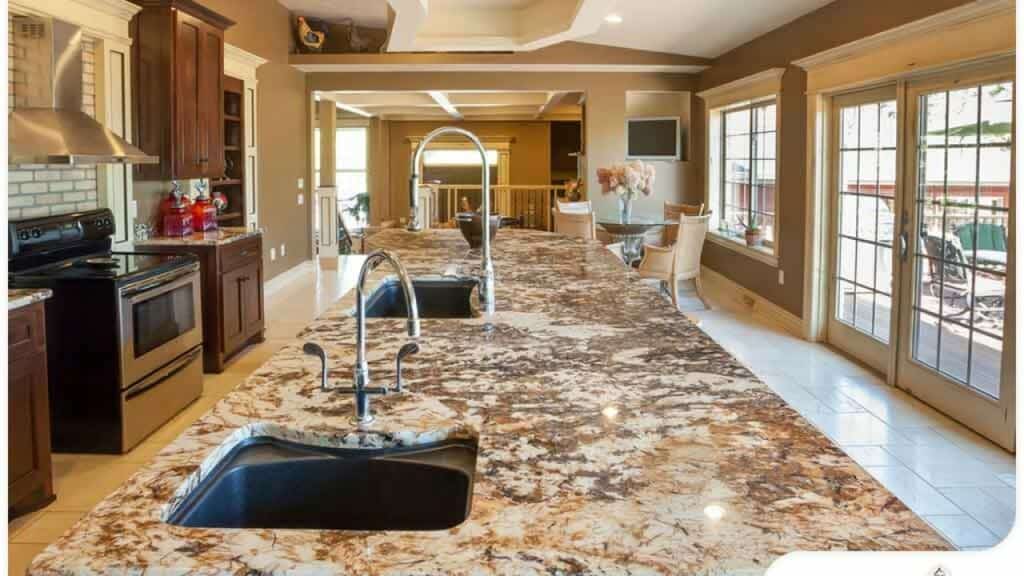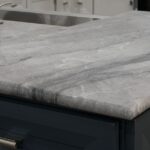Cultured marble countertops are a cheaper, alternative version of a classic piece of furniture we all love. Marble slabs, after all, have been part of American interior design since the last century, when the demand for natural stones skyrocketed. Despite being considered a luxury back then, marble is fairly accessible on the market, embracing an array of colors and models to please any taste. Among its selected catalog, cultured marble turns out to be the choice of many homeowners who don’t want to spend a lot of money on their counters.
But what are the pros and cons surrounding these products? Are they worth it?
You must read this article to find out. Today, we’ll bring you some professional tips and technical considerations that may influence your final decision. If you’d like to see further details on the use of traditional marble, check out this brief guide.
What are cultured marble countertops?
As much as we like to label everything in the natural-stone spectrum, cultured marble is a manmade material. Just like Quartz, which is built from Quartzite pieces, this kind of marble is produced by a blend of pulverized marble and synthetic resins and dyes – thus coated with a clear, protective gel resembling a sealant.
Nevertheless, it’s safe to say that both products achieve the same function – serving as go-to materials to manufacture kitchen countertops, sinks, backsplashes, bathtubs, showers, and television stands to name a few.

However, while they share common similarities with any other porous natural stone – such as being prone to chemical damage, scratches, stains, and cracks, as well as requiring minimal maintenance if taken proper care of – cultured marble does present visual and technical differences. Some of them include:
- it is cheaper than real, quarried marble;
- it has integrated sinks instead of top or under-mounted sinks;
- it’s covered with bright finishes, hence the glossy look;
- unlike marble, it does not need to be sealed twice a year;
- it shows no sign of seams, caulking or inconsistent veining;
- its countertop version usually has the same color and pattern all over the project, aside from a thin edge and a flat finish-like underside.
In other words, cultured marble can either be a downgrade or an upgrade to real marble depending on your point of view. Below, we’ve listed a few considerations that may be important in your search for the ideal countertop.
Pros of cultured marble countertops
- Price tag: As mentioned in the beginning, cultured marble is not as expensive as its counterpart, going for half or a third of its price. This means it’s a more accessible option even among things like granite and quartz, which already have a reputation for being cheaper than marble on a national scale.
- 100% sealed surface: Any countertop should be acquired as a long-term investment – and this one is probably your safest bet. As a manufactured stone, it is designated to last for a long time under minimal maintenance, and that is further proved when you take into account it doesn’t need to be sealed. In general, porous surfaces such as natural marble must be protected with a special coat every six months or so, but cultured marble already comes with a permanent gel. That makes it easier to clean and maintain.
You can read all about sealing in this article.
- Design consistency: The amazing thing about cultured marble countertops is that they can mimic the look of most natural stones. Since the material is preplanned, this product offers a variety of unique patterns, color palettes, and exotic textures. In interior design, it can match any aesthetic you desire.
Don’t miss: Black Marble Countertops – Tips and Design Ideas for You

Cons of cultured marble countertops
- Frailty: Even though we just told you how resistant its protected surface is when compared to raw marble, this product can still stain if you don’t establish a daily cleaning session. Marble is naturally weak against acids – so any spill of lemon or a nail polish remover can dissolve the gel and be absorbed by the stone, damaging its inner structure. This very same glossy gel will also crack with age, an issue only exacerbated by direct contact with heat.
- Poor resale value: Despite marble being pivotal to increasing the resale value of your home – especially rarer models – cultured countertops are not seen as lucrative due to all their chemical makeup. Some might consider this nitpicky, sure, but it’s a fact regardless.
- Quality control: This is the main thing to keep an eye on. Even though there are trusted natural stone providers out there – ourselves included – any manufactured product of this kind can be mismanaged and poorly fabricated, for there isn’t any true quality standard on the market to follow. If you don’t undertake a thorough analysis of your manufacturers, choosing a weaker and less reliable structure can become a possibility.
Conclusion
As attractive as it may seem, as a team with 10 years of expertise under our belt we can’t really recommend cultured marble over real marble for a kitchen or bathroom countertop. Overall, the latter’s qualities still surpass the uncertainties of the first, no matter how you look at it. But how can you know for sure?
Well, by seeing it for yourself, of course!
Eagle Stones offers a wide catalog of natural stones for you!
If you’ve been entranced by high-end marble countertops and live near Sarasota, FL Eagle Stones is here to fulfill your needs. At our store, you will find a rich diversity of marble slabs, shipped from different places around the world, and sold to you at an unbelievable price.
From super whites to dark graffiti, browsing through our display will make you find the stone that’s a perfect match for your lifestyle and home aesthetics. Check out the online catalog here and fill out this form as soon as possible to get a free estimate on your dream project!



